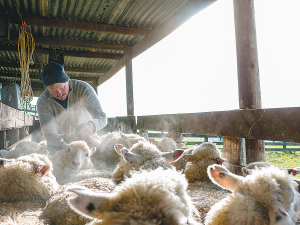Total sales of veterinary and horticultural antibiotics in New Zealand have decreased for a fifth year in a row, dropping by 23% in 2022.
The drop is a key finding of the ‘2022 Antibiotic Agricultural Compound Sales Analysis’ released recently by New Zealand Food Safety (NZFS). The report summarises the trends in the annual sales of veterinary and horticultural antibiotics as part of a national action plan to reduce antimicrobial resistance (AMR).
Organization has identified AMR as one of the top 10 global health threats facing humanity, so seeing a 23% drop in the sale of antibiotics for plants and animals is good news,” says NZFS deputy director-general Vincent Arbuckle.
“Antibiotics are antimicrobial medicines essential to the health of humans, animals, and plants, but using them excessively can lead to the emergence of resistant bacteria that don’t respond to antibiotic treatment.”
Arbuckle adds that, with AMR increasing around the world and few new antibiotics being developed, careful use of the antibiotics will help to keep them effective.
Of the 16 classes of antibiotics NZFS monitors, five are critically important for human health, meaning they should be considered the last line of defence in animal infections.
“Overall, the sale of antibiotics has dropped from 71,361kg in 2017 to 41,033kg in 2022. That’s a drop of 42%,” Arbuckle says.
“The ongoing decrease in the use of antibiotics can be put down to a concerted effort from industry and NZFS to ensure these important medicines are used appropriately.”
He says continued vigilance of veterinarians, farmers and other industry stakeholders, as well as ongoing monitoring and support, are an effective way to minimise the incidence of AMR.
“We are also reviewing our regulatory oversight of antibiotics used in plants and animals, which could lead to a further reduction in antibiotic use as controls for some antibiotics might be tightened,” Arbuckle adds. “This extensive piece of work has a five-year timeframe as it involves reviewing hundreds of antibiotic products.”
In 2017, the New Zealand Antimicrobial Resistance Action Plan was jointly developed by the Ministry of Health, New Zealand Food Safety and representatives from across the human health, animal health and agriculture sectors.
Its vision is for New Zealand to manage antimicrobials as a valuable shared resource and to maintain their efficacy so they can be used to treat infections in humans, as well as to manage diseases in animals and plants. An update to the action plan is due to be released next year.



















